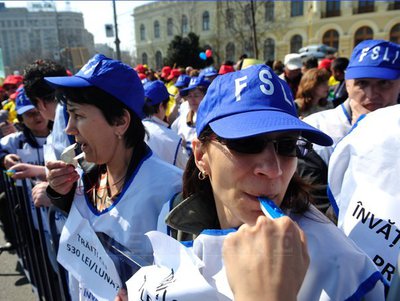Romania: The new school year begins with complains of secondary education employees
Published:
An eternal and endless reform of the national education system, promised by the Romanian political class during the Revolution of 1989 is still expected to be finalized.
Since the fall of the communist system in December 1989, the management of the Ministry of Education has seen 24 ministers in 26 years. Each minister came with resounding statements about education reform, promises to increase teachers’ salaries (the lowest among EU countries), promises to improve the quality of the education system, and promises to make investments in schools and teaching materials. The unions protested during this period against all the bad aspects of the system that generated progressive declining of living standards and working conditions of teaching staff, increased dropouts, and caused lower quality educative process.
This autumn, the 2016/2017 school year started under the sign of social insecurity in education sector due to a government decision to reduce the wages of accountants and secretaries of all public schools. This decision has created strong dissatisfaction among affiliated members of Fédération des Syndicats Libres de l'Enseignement (FSLE), ETUCE member organisation in Romania. For this reason, the school year began with protest pickets organized by FSLE.
“The teachers’ federations require compliance with the Law of National Education. According to the Law, the Government should spend 6% of GDP on education sector, and we demand the Law being enforced from the 1st of January 2017. Also, we state again that there is a lack of social dialogue between trade unions and ministries, as ministers want to silence the unions” declared Mr. Simion Hancescu, president of FSLE. On 18 October 2016, President Hancescu informed the Minister of Education and the Government, during negotiation generated by the last protest, that FSLE will continue the protests until the wage inequalities are corrected.
Another big issue that affects the functioning of the Romanian education system is the organization of a national “mega-competition” for the school principals and deputy principals. The Ministry of Education does not consider the opinion of FSLE which opposes this practice as it seriously disrupts the functioning of the education system: if school principals fail the contest, they regain the status of teacher and those teachers who replaced them while they worked as principals, lose their jobs. FSLE would support the organisation of such national competition, but only after the end of the school year.
All these problems create a state of insecurity for employees of the national education system. FSLE calls on the education workers in Romania to unite and act firmly so as to more effectively fight social injustice.